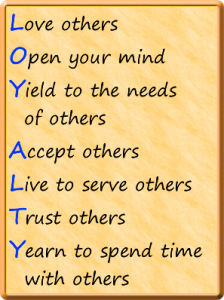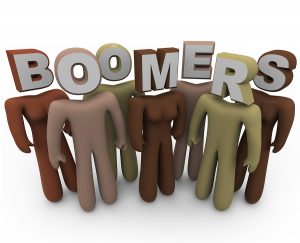nurturing employees Involves more than a paycheck
Is your organization living from paycheck to paycheck? I’m not asking how your financial ledgers are; I’m asking how your employee ledgers are. When the primary relationship with our employees is transactional we are shorting the ledger. Demand 40 (or often more) hours of work a week in exchange for a piece of paper with numbers on it or a direct deposit to the bank account. If we are not nurturing employees we are living paycheck to paycheck as surely as most of our employees are.
The Animal Nature of Nurture
 One of the benefits of living in Central Florida is all the attractions around here. One of the attractions, of course, is Sea World.
One of the benefits of living in Central Florida is all the attractions around here. One of the attractions, of course, is Sea World.
Sherry and I love to watch the animal trainers work with the animals at Sea World. It’s really interesting how they can do so well with it. There seems to be a very special relationship with the animal and many an animal trainer will tell you exactly that.
- They will feed the animal
- They make physical contact
- They talk to the animal and encourage it.
This nurturing, one-on-one time allows the animal and the trainer to build reciprocal trust. The reciprocal trust and the nurturing that allow the trainer and animal to be able to work together effectively and safely.
Nurturing Employees as a Leader
If you want an engaged and productive workforce, you must include nurturing employees as a part of the relationship. It transforms the relationship from merely transactional to one of collaborative. It provides meaning and purpose to their job and not just a check. Without taking an employee beyond that transactional level, you will NEVER help them reach their fuller potential, when means they will never be as productive as they could be for you.
The Human Nature of Nurture
- Our need to trust others and be trusted.
- We are desperate for people to recognize that we are significant
- For others to recognize that we have an impact.
- We crave for them to encourage us
- Our deep need for them to guide us.
As I have often said before, it’s all personal and it’s all emotional. If you keep it transactional your organization is living paycheck to paycheck. You can survive that way but it’s hard to really thrive.
Giving Nurture
Why would I want to bother to do that in a business environment or as a leader?
“People don’t care how much you know until they know how much you care.” -John Maxwell
Here’s some things you can do to build those nurturing relationships:
- COMMIT TO PEOPLE – you have to be committed to their development. It doesn’t mean you are an enabler, it doesn’t mean that you take over their lives; it simply means that you provide the circumstances and that you are committed to helping them help themselves if they are willing to take the steps to go in the right direction.
- BELIEVE IN PEOPLE – If you don’t believe that they can become better or that they can achieve greater things, then you are not going to be able to get anything out of them because that belief will show through. Whether you believe they are worthless or believe they are worthwhile, it will show through in everything you do.
- GIVE WITH NO CONDITIONS – Pour yourself into them and do it without setting any conditions. A lot of people thing that giving is a reciprocal thing; I do something for you and you do something for me. No conditions here. Go in and pour yourself into them simply because you want to see them get the best out of themselves. You will benefit in the long-run but you can’t go into it with the expectation of a tradeoff because there isn’t necessarily going to be one.








